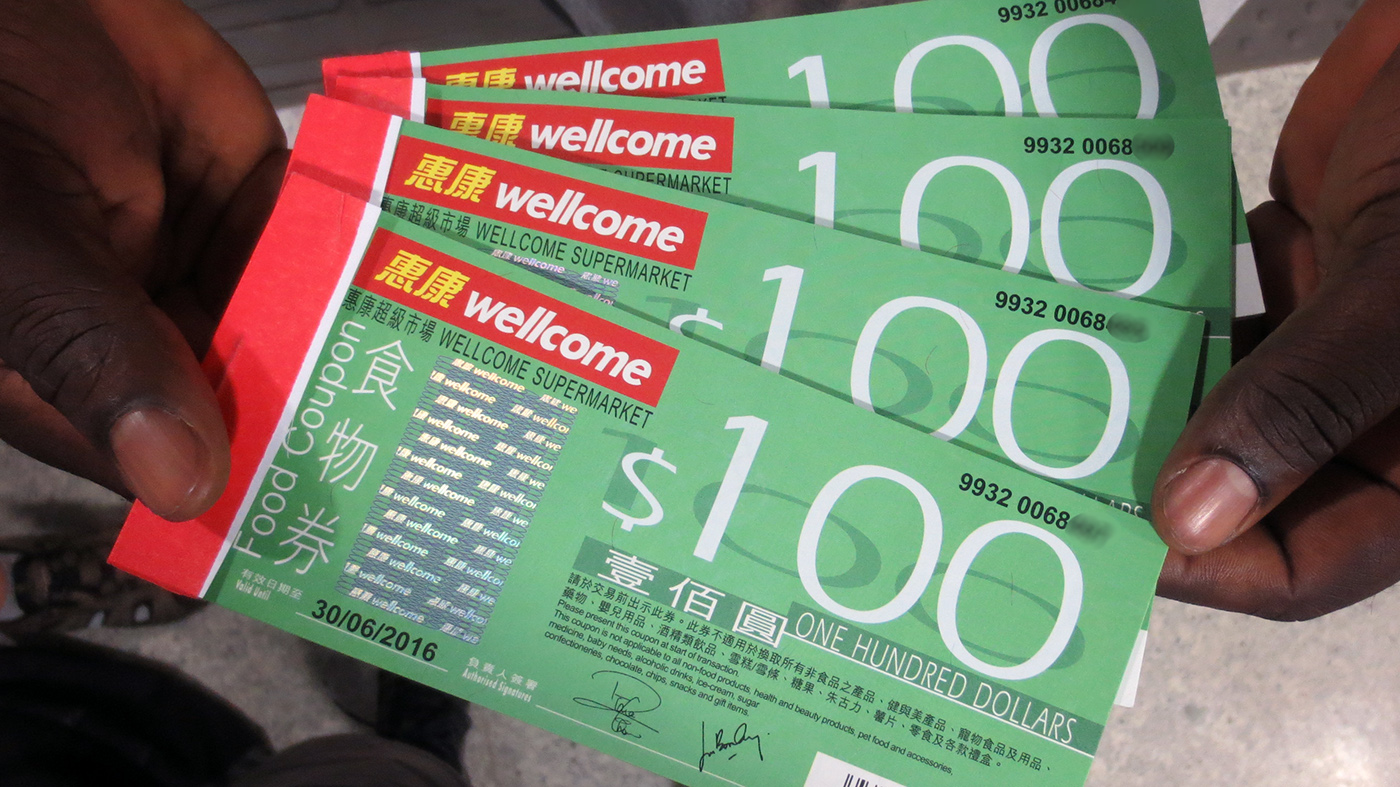
Remarkable events over the past year demonstrate that refugees can affect change when they work together. Consideration should be given to the events that led to the introduction of supermarket coupons to replace the in-kind food distribution that has been the preferred arrangement since humanitarian assistance for refugees was introduced in 2006.
“We request the immediate introduction of itemized price to ISS food collection forms … it is vitally important that we … are informed and allowed to make informed decisions on what is available, at what price and in what quantity.”
On that morning refugees staged a sit-in at three branches of ISS-HK to protest against practices alleged to reduce the value of rations and cause widespread hardship to refugees who rely on government assistance and face 15 to 22 months incarceration if arrested working.
The Media investigated the food distribution system established for refugees which was claimed to compromise food security rights for the asylum population.
On 19 February 2014, the South China Morning Post reported that:
“Post’s research supports claims that food supplied by government contractor is worth much less than its stated value … A comparison found that buying the goods on the lists would cost between 13 and 30 per cent less than the HK$ 1,060 worth of food ISS was contracted to provide … The amount for groceries increased to HK$ 1,200 this month after government nutritionists deemed an increase necessary.”
On 20 February 2014, Metro Daily published its investiation:
“Refugees were left hungry like dogs … The government has increased the amount of assistance to be provided to refugees … investigations have found that the food they are receiving from ISS is less than the amount set by the government by at least 25% … That adds up to just $900 per month and this is less than the official aid amount by $300.” (Translation)
On 9 March 2015, Cable TV reported the results of its investigation:
“The food rations refugee collect every month have ‘shrunken’. We investigated how much the reduction is and where the missing money goes … Our reporter took his food packages to compare prices at the market. The total price of his monthly food was $993.30 or $200 less than his $1200 food allowance. Also the weight of the food Hassan collected is less than what he selected in the forms … Our reporter also found that other refugees receive ‘shrunken’ food collection … about 20% less.” (Translation)
In March 2014 the refugee community was disappointed by the initial reaction of the Social Welfare Department that dismissed many documented complaints:
“The SWD has conducted in-depth investigations into over 20 complaints made by service users about the undesirable quality and quantity of the food they received. Investigation results showed that the complaints were not substantiated. The SWD will continue to take each and every complaint seriously.”
Nonetheless, the Refugee Union directed numerous complaints to the SWD head-office on a regular basis and established trust with senior welfare officers who became increasingly sympathetic with the problems brought to light. While powerless to increase the actual levels of assistance, the SWD considered implementing remedial actions.
Cautious optimism spread in December 2014 when the SWD issued a new servive tender requesting that:
“The Contractor shall provide each Service User with food of different varieties … in the form of food coupons that should be non-transferable and non-cashable.” While concerns were raised about the actual implementation of the scheme – for example, would the current shops be involved – the shift away from emergency rations was welcomed.
Finally on 28 May 2015, the Refugee Union’s relentless campaign scored a historic victory with the introduction of food coupons from “Wellcome”, self-described as the largest and longest established supermarket chain in Hong Kong with 280 stores serving more than 16 million customers every month.
Initial reactions are positive. Yet it is reported that the Refugee Union will monitor the implementation of the system, one member noting possible shortcomings:
“There is another issue about food items which we South East Asians eat, like atta, dall, basmati rice. Will these be available at (Wellcome)? And one thing more during I was at ISS office I heard a (refugee) was arguing with officer about halal meat problem. So I asked my officer why ISS did not get refugee representatives’ advice before the take any decision?”


